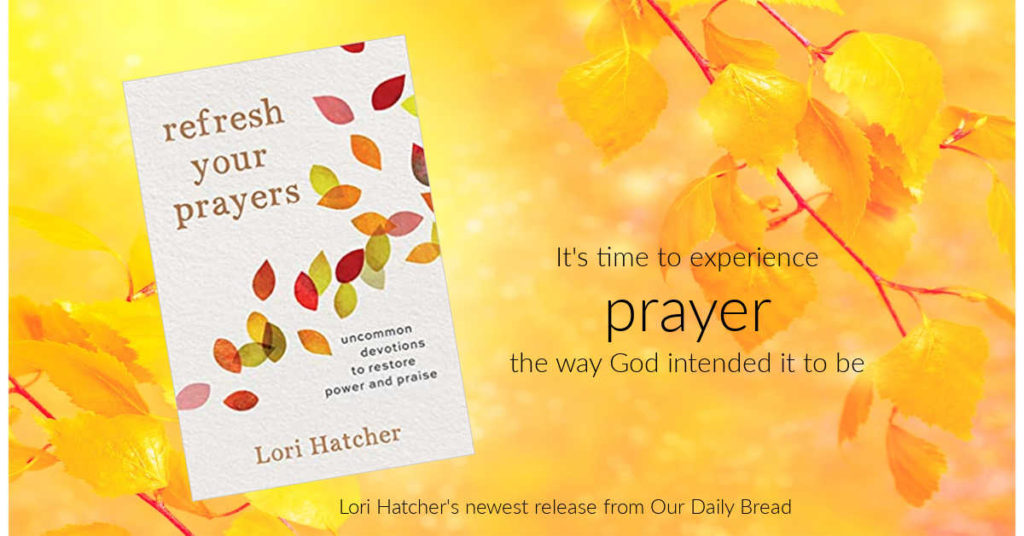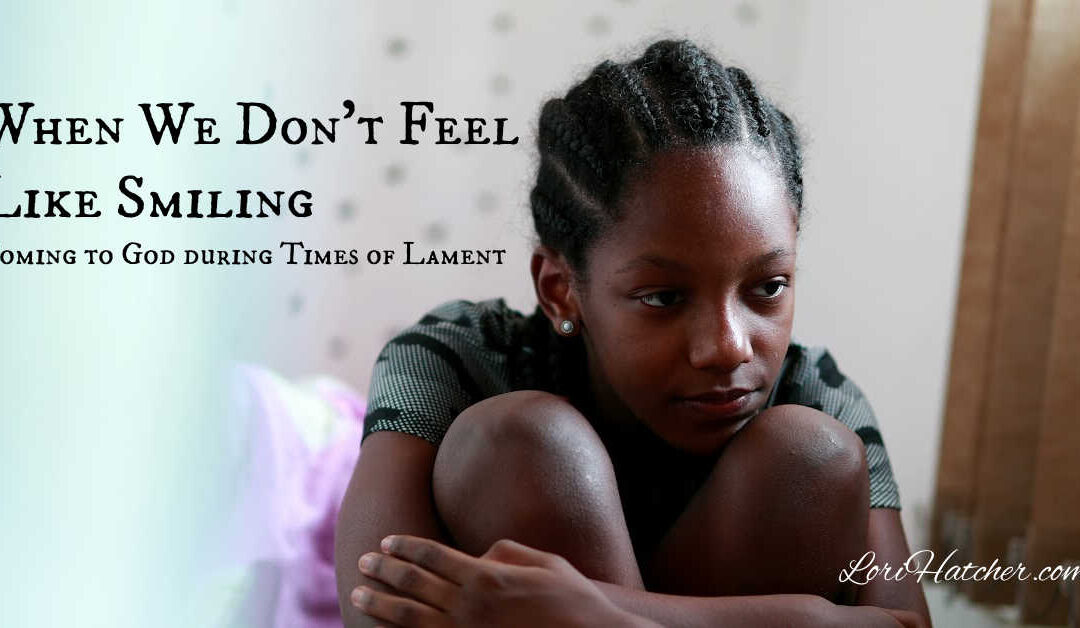When my daughter was ten years old, my husband paid her to smile.
It was family picture day at church, and she just wasn’t feeling it. Normally a cheerful kid, she wasn’t cheerful that day. She didn’t want to dress up. She didn’t want to have her picture taken. And she certainly didn’t want to smile.
As our turn in front of the camera neared, my husband grew desperate.
“Just smile once,” he said. “We haven’t had a family picture in a long time, and we want this to be a nice one.” No response.
He appealed to her vanity.
“You’re a pretty girl, and you’re even prettier when you smile.” Nothin.
Then he tried peer pressure.
“This picture’s going in the church directory. All your friends will see it.” She crossed her arms and frowned.
In Desperation
As the family ahead of us posed for the camera, he knew time was running out. “I’ll pay you five dollars if you’ll smile.” Ahhhh. Now he had her attention. Money talks, and this girl was no fool. She knew a good deal when she heard one.
“Smile!” the photographer said, and smile she did. For the picture and all the way home, clutching her five dollar bill and imagining how she would spend it.

The result was the worst picture our family has ever taken. Every one of us looked strained, pained, and awkward.
This experience taught me you can’t fake happiness. If you try, you fool no one. A smile that doesn’t reach a person’s eyes is a smile in name only. Real joy can’t be forced.
I’m thankful God doesn’t require us to smile when we don’t feel like it. When we present ourselves before him in prayer, we don’t have to slap on a cheesy grin and pretend everything’s okay. We can come barefaced with our hurts, disappointments, and complaints knowing he understands. We’ve no need to dress up our circumstances or hide behind fake faith. We can bring him our saddest faces without fear of judgment.
King David knew this. Although he penned dozens of psalms of praise and thanksgiving, he also wrote psalms of grief and pain. The Bible calls these psalms of lament. Frightened, broken-hearted, and gut-wrenching, these expressions of sorrow demonstrate the intimacy with which we can approach God during trying times.
Psalm 86 is a classic example.
First David comes to God in brokenness.
“Hear me, Lord, and answer me, for I am poor and needy” (v 1).
He voices a legitimate and fear-filled complaint.
“Arrogant foes are attacking me, O God; ruthless people are trying to kill me—they have no regard for you” (v 14).
He begs God in the agony of his soul.
“Guard my life, for I am faithful to you; save your servant who trusts in you. You are my God; have mercy on me, Lord, for I call to you all day long.” (v 2-3).
After laying his request before the Lord, he lifts his eyes to God’s throne.
He remembers God’s character and love and raises his lamenting voice in praise.
“Among the gods there is none like you, Lord; no deeds can compare with yours. . . . For you are great and do marvelous deeds; you alone are God” (v 8-10).
Praise leads him to acknowledge what he has known but temporarily forgotten—God’s kind heart.
“You, Lord, are forgiving and good, abounding in love to all who call to you.” (v 5).
David’s cries of pain become expressions of triumphant surrender.
He invites God to grow his faith and reveal more of himself in the midst of the trial.
“Teach me your way, Lord, that I may rely on your faithfulness; give me an undivided heart, that I may fear your name.”
What began as a cry of lament ends in a shout of triumph.
David remembers the ultimate way God demonstrated his love toward him by saving him from an eternity in hell, and he lifts his voice in worship.
“I will praise you, Lord my God, with all my heart; I will glorify your name forever. For great is your love toward me; you have delivered me from the depths, from the realm of the dead.”
Psalm 86:12-13
From the beginning of his lament until the end, David’s circumstanced don’t change, but he does. He allows his pain to push him toward God, and there he finds comfort and help. His faith and his witness grow.

And what about his smile?
Did it ever return? I’m confident it did, because David asked God to restore it.
“Bring joy to your servant, Lord,” he prayed, “for I put my trust in you” (v 4).
I’m confident if that day had been family photo day, David would have taken his place among his loved ones and smiled. Not because someone paid him five dollars, but because he’d learned to trust God in the midst of his sorrow.
And this filled his heart with joy.
Now it’s your turn. Do you feel comfortable coming to God is the midst of your pain, or do you feel as though you have to put on a brave, spiritual face? Leave a comment below and share your thoughts.
Does Your Prayer Life Need Refreshing?

We know Bible reading and prayer are vital parts of our faith, but what happens when our prayer lives become stagnant and our quiet times grow stale? We need something more than just familiar verses and the command to pray. In Refresh Your Prayers, Uncommon Devotions to Unlock Power and Praise, Lori Hatcher shares relevant, five-minute devotions that spotlight unusual prayer verses in the Bible.
Each devotion ends with a Power Point (a spiritual truth to empower your faith) and a Praise Prompt (a short prayer designed to magnify God and make your faith soar). The Live It Out section challenges you to apply what you’ve learned right now for immediate change.
If you’re tired of your all-too-quiet quiet time, Refresh Your Prayers is the answer.
The UNcommon Book on Prayer – Unusual Devotions to Unlock Power and Praise
Available now at Amazon.com.

Have you subscribed to Refresh?
If you’d like to receive a weekly 5-minute devotion to help you rediscover the excitement of God’s Word, CLICK HERE.




Tough questions my friend. Even tougher answers. “Am I like King David? Not even close!” Then again, God too has seen me at my worst and at my best. How often have I plastered a fake smile on to greet or support others, but on the inside I’m dying. I recognized long ago that God sees what’s inside and if I’m honest with Him and myself, He’ll know it. Am coming to realize, as you so wonderfully pointed out, that I can smile sincerely even when I’m hurting because my joy comes from God, it is not sourced from my circumstances. Remembering to smile through our pain is an important part of remembering Who we represent isn’t it?
You nailed it, J.D., the ability to smile — sincerely — even while hurting is a gift from God that defies understanding. It’s supernatural and a holy offering of faith.
Such a good message, Lori. When I was a teenager, I was the one having a bad day in our only family photo. For over fifty years, I’ve had to look at that grimaced face and remember my Mother’s embarrassment at my behavior. I’m thankful for the raw outpouring of emotion in the Psalms acknowledging that we can be real with a Heavenly Father who loves us.
Amen, Dottie. God’s grace (and a mother’s grace) is a precious and generous gift. Thanks for chiming in today, friend!